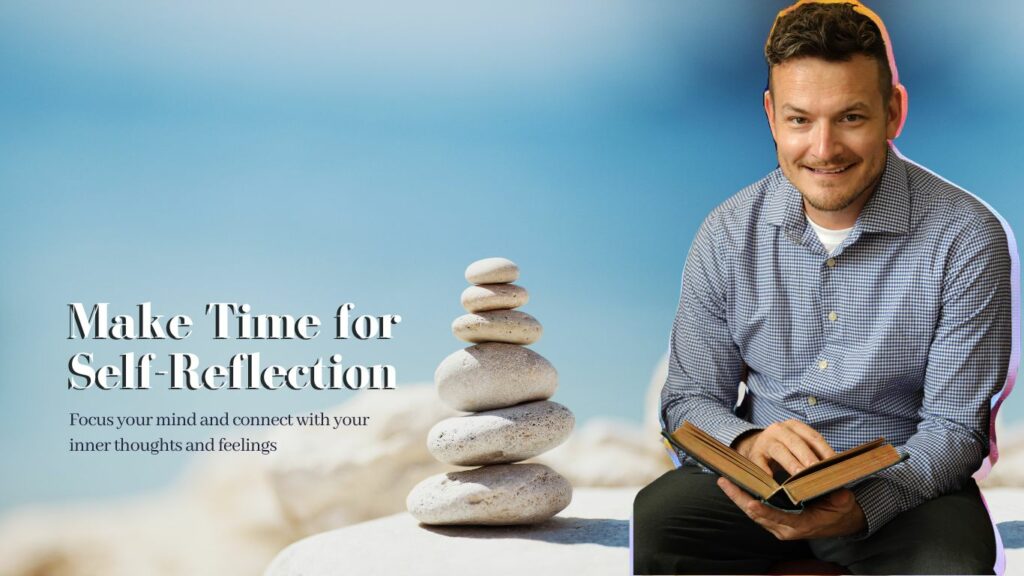Personally, I love the way technology speeds things along and gives us ways to automate and make things more efficient. But when it comes to achieving our goals, I still believe there are still some things better done manually, without the use of gadgets and devices.
For example, spending time each day writing in a journal can be a great way to hold yourself accountable for your actions and improve your life. Setting aside the time to physically write, not just to type or talk-to-text, enforces a higher level of focus, introspection, and mind-body engagement. Plus, there simply aren’t as many distractions when we aren’t attached to our devices. So, this is an activity you wouldn’t want to outsource or automate (though setting an alarm or a daily calendar reminder prompting you to do your journaling might be very helpful).
In fact, introspective activity like self-reflection often directly correlates to higher levels of success, likely because it increases self-awareness. Take Benjamin Franklin, for example. He was a highly productive, successful person. He invented the lightning rod, created the first bifocals, started the first public library, was an author of Poor Richard’s Almanac, and even helped draft the U.S. Declaration of Independence.
Ben Franklin knew that keeping track of his goals made him more likely to accomplish them. He was so committed to the idea that, beginning at the age of twenty, he created a written life plan that he lived by every day. It was specific to the degree that it detailed how he would spend each hour, including time for work, continued education, leisure, daily reflection, and rest. By looking at his example, it is easy to see that Franklin understood the importance of having written goals, and he also knew how to balance his work and personal time.
Self-improvement was a daily goal of Franklin’s. He knew that without self-reflection, there was no way to discover new ideas or improve upon old ones. So, most evenings, he would spend time reflecting on the day’s events, writing down what he had learned. To better serve himself, his family, and his community, the following morning, he would also reflect on what had gone well and what could be improved upon from the day before.
Benjamin Franklin understood the importance of setting goals and working towards them while also taking time to reflect on achievements, hurdles, and overall progress. His introspection yielded many brilliant ideas and insights and allowed him to achieve his goal of consistent self-improvement. He understood that in order to be successful, one must be both goal-oriented and self-reflective.
This is why I believe that, in addition to setting goals and working towards them, it is essential to make time for self-reflection. By taking the time to reflect on our day-to-day experiences, we can learn from our mistakes, become more aware of our thoughts and feelings, and develop a greater sense of self-awareness. We can also use this introspection to inform our goals and action steps, making sure that we are always moving closer to our desired outcome.
If you’re not sure how to get started with self-reflection, here are a few ideas:
-Keep a journal: This is a great way to document your thoughts and feelings, as well as your successes and challenges.
-Talk to a friend or family member: Talking about your experiences with someone who will listen and offer supportive feedback can be very helpful.
-Attend a workshop or class: There are many workshops and classes available that focus on self-reflection and personal growth. Attending one of these can be a great way to learn new techniques and gain insights into your own thoughts and feelings.
-Meditate: Meditation is a great way to focus your mind and connect with your inner thoughts and feelings.
No matter how you choose to do it, make sure that you set aside some time each day or week for self-reflection. Doing so will allow you to gain a greater understanding of yourself and your goals, and it will undoubtedly help you move closer to achieving them.
Do you make time for self-reflection? If not, why not? What are some of the ways you like to reflect on your experiences? Share your thoughts and ideas in the comments below!



